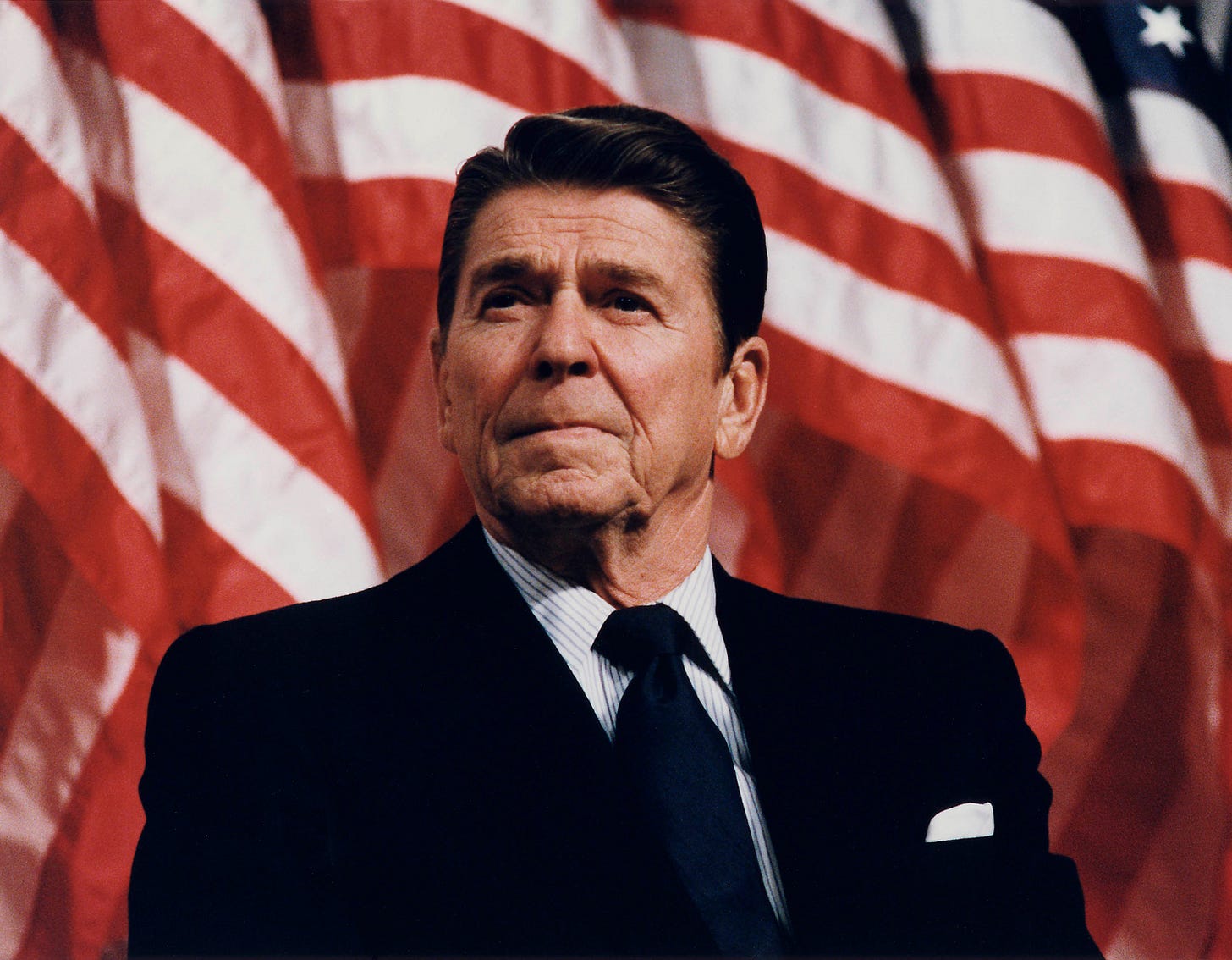Bush, Reagan and the Pivot of History
Ronald Reagan was not "a" great president: he was "the" great President. By following in those footsteps, his heir has an opportunity to establish a new American century.
by Rod D. Martin
October 25, 2004
"Bush, Reagan and the Pivot of History" is the concluding chapter to Rod D. Martin and Aman Verjee’s acclaimed 2004 election book, Thank You, President Bush: Reflections on the War on Terror, Defense of the Family, and Revival of the Economy. With an introduction by Jeb Bush and chapters examining every aspect of his presidency by co-authors including Dick Cheney, Mike Huckabee, James Dobson, Phyllis Schlafly, Ed Meese, and nearly two dozen additional conservative all-stars, U.S. News has called it “the must-read book of the season on the pro-Bush side.”
Bush, Reagan and the Pivot of History
Concluding chapter of Thank You, President Bush, Los Angeles: World Ahead Publishing, September 2004.
Aman and I dedicated this book – a call for the re-election of George W. Bush – to Ronald Reagan. This choice meant more than you might think, both about us and about our current President.
For our parts, Ronald Reagan was not merely a great president: he was the great…




